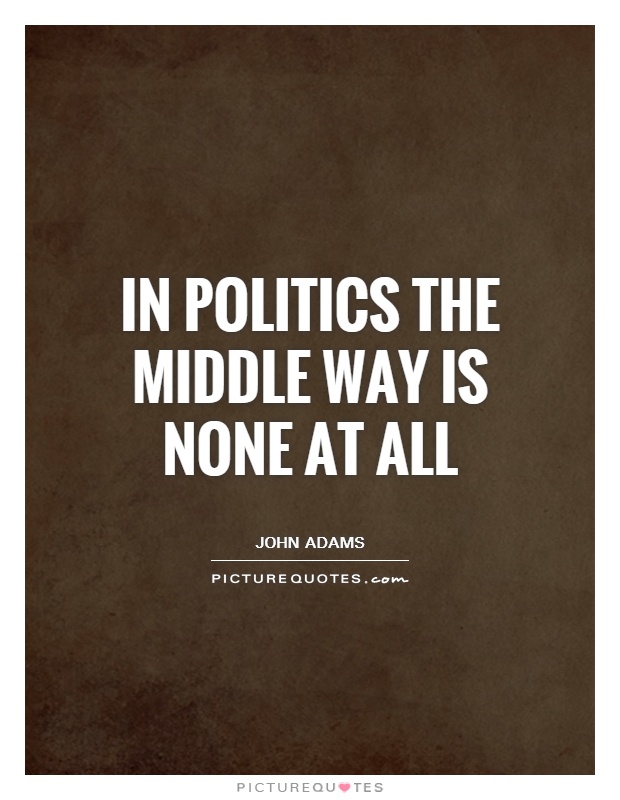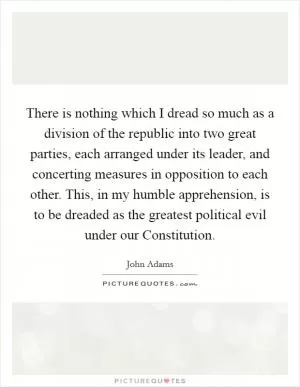In politics the middle way is none at all

In politics the middle way is none at all
John Adams, the second President of the United States, was a man who firmly believed in standing up for his principles and not wavering in the face of political pressure. Throughout his political career, Adams was known for his strong convictions and unwavering commitment to his beliefs, even when it meant going against the prevailing political winds.Adams was a staunch advocate for independence from British rule and played a key role in the drafting of the Declaration of Independence. He was also a leading figure in the movement for American independence and was instrumental in securing diplomatic and military support from France during the Revolutionary War.
Adams' commitment to his principles was evident in his approach to politics. He was not one to compromise or take the middle ground on issues that he felt strongly about. In his view, the middle way was often seen as a sign of weakness or indecision, and he believed that it was better to take a firm stand, even if it meant facing opposition or criticism.
One of the most famous examples of Adams' refusal to compromise was his defense of British soldiers who were accused of murder during the Boston Massacre. Despite facing intense public backlash, Adams agreed to represent the soldiers in court, arguing that they were entitled to a fair trial and legal representation. This decision was highly controversial at the time, but Adams stood by his principles and ultimately secured acquittals for most of the soldiers.
Adams' commitment to his principles also extended to his presidency. During his time in office, he faced numerous challenges, including threats of war with France and internal political divisions. Despite these challenges, Adams remained steadfast in his beliefs and refused to compromise on issues such as neutrality in foreign affairs and the protection of civil liberties.












 Friendship Quotes
Friendship Quotes Love Quotes
Love Quotes Life Quotes
Life Quotes Funny Quotes
Funny Quotes Motivational Quotes
Motivational Quotes Inspirational Quotes
Inspirational Quotes